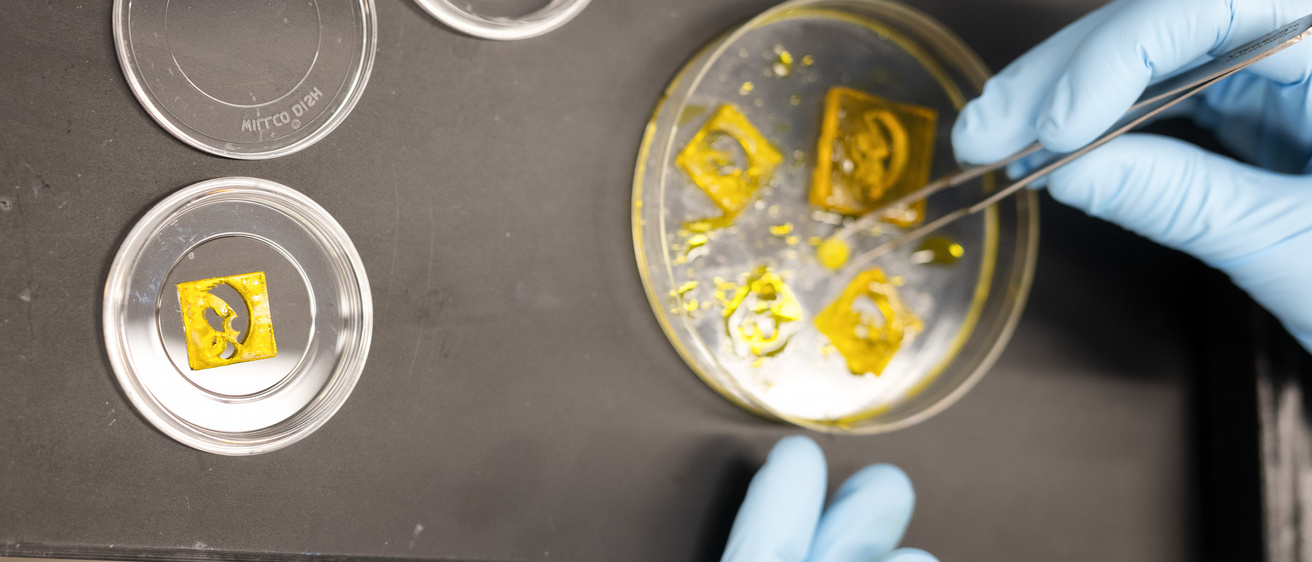Main navigation
Overview
The Roy J. Carver Department of Biomedical Engineering offers fast-track BS/MS, M.S. and Ph.D. degrees. Students who have earned a baccalaureate degree in engineering or in a related field such as mathematical, physical, or life sciences are eligible to be considered for admission to the graduate program in Biomedical Engineering. However, students from non-engineering disciplines should have completed a four-course engineering Math sequence (Calculus I & II, Matrix Algebra and Differential Equations), a full year of calculus-based Physics, and some introductory Engineering coursework such as Statics and Dynamics in order to be competitive for admission.
This page provides information for applicants interested in pursuing the MS and PhD degrees. Separate instructions have been provided for applicants interested in pursuing the *fast track BS/MS degree. The minimum requirements for application to the Biomedical Engineering graduate program at the University of Iowa are:
GPA: 3.0 on a 4 point scale for M.S. applicants and 3.25 on a 4 point scale for Ph.D. applicants
TOEFL: 85 (IBT version).
Research has demonstrated that the GRE can act as a barrier to entry for many students applying to graduate schools. The Roy J. Carver Department of Biomedical Engineering has removed the GRE as a requirement for all graduate program applications. Beginning with the 2020-2021 admissions cycle, the GRE will no longer be required for applications to our graduate program. We are committed to recruiting the best students from all backgrounds and our admission committee holistically reviews all prospective students’ applications.
Jan 1st deadline
Financial support
Most Biomedical Engineering PhD students receive financial support through graduate research assistantships, supported by individual faculty members. Decisions about these research assistantships are made by the individual faculty members. Students usually identify laboratories to join before starting their graduate studies. Questions about availability of this financial support should be addressed to faculty in your primary area of study.
A limited number of teaching assistantships and research assistantships are available for BME PhD students to spend the first year of their PhD program doing two-three research rotations with different faculty members before selecting their Dissertation advisor, who will support them for subsequent years. Selection of these students is highly competitive, and decisions are made by the graduate committee.
Most Biomedical Engineering MS students do not receive financial support.
The Graduate College has many other resources available to review.
International Students
A minimum TOEFL internet-based test score of 85 is a requirement for admission to the Biomedical Engineering graduate program. In addition, the English as a Second Language (ESL) program must evaluate students with TOEFL scores below 100 on the internet-based test (or under 600 on the paper-based exam) as soon as they arrive on campus. This evaluation is the basis for ESL recommendations for Intensive English or other coursework to improve English proficiency. Students are required to enroll in the prescribed courses within the first year of graduate study. The Graduate College will monitor the results of on-campus English evaluations of students subject to the TOEFL requirements. Students will be expected to enroll in courses recommended by ESL during their first semester and to continue enrollment until satisfactory grades are earned or until subsequent evaluation indicates that the required level of English proficiency has been achieved. New students taking the English Proficiency Evaluation are notified of the results shortly before the start of the semester. In addition, copies of the results are sent to advisers so that they have them when they meet with students. Results may include recommendations by ESL for enrollment in English preparation courses. Students will be required to continue registration in appropriate ESL courses until certified to have achieved the desired level of proficiency. This policy may preclude some students from enrolling in ANY graduate level course work during their first semester, and may limit the amount of graduate course work they may take in subsequent semesters if ESL determines that additional English preparation is required. Failure to enroll in required ESL course work would prohibit future registration in the graduate program until requirements are fulfilled.
